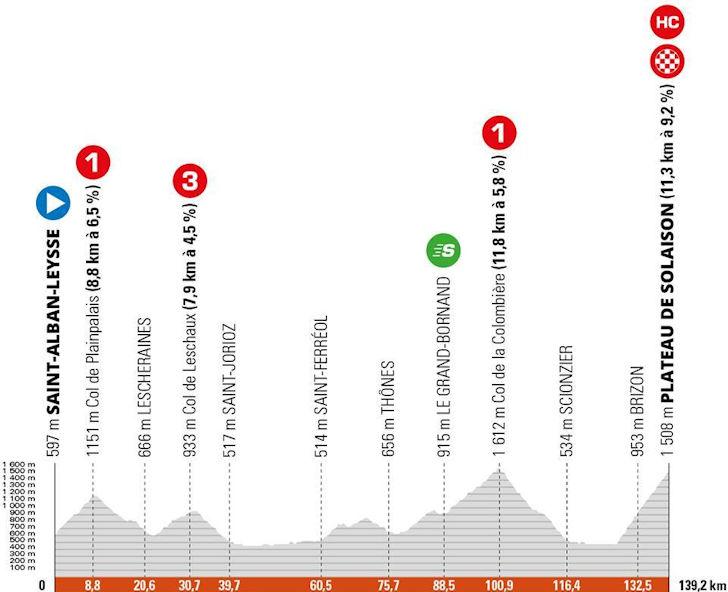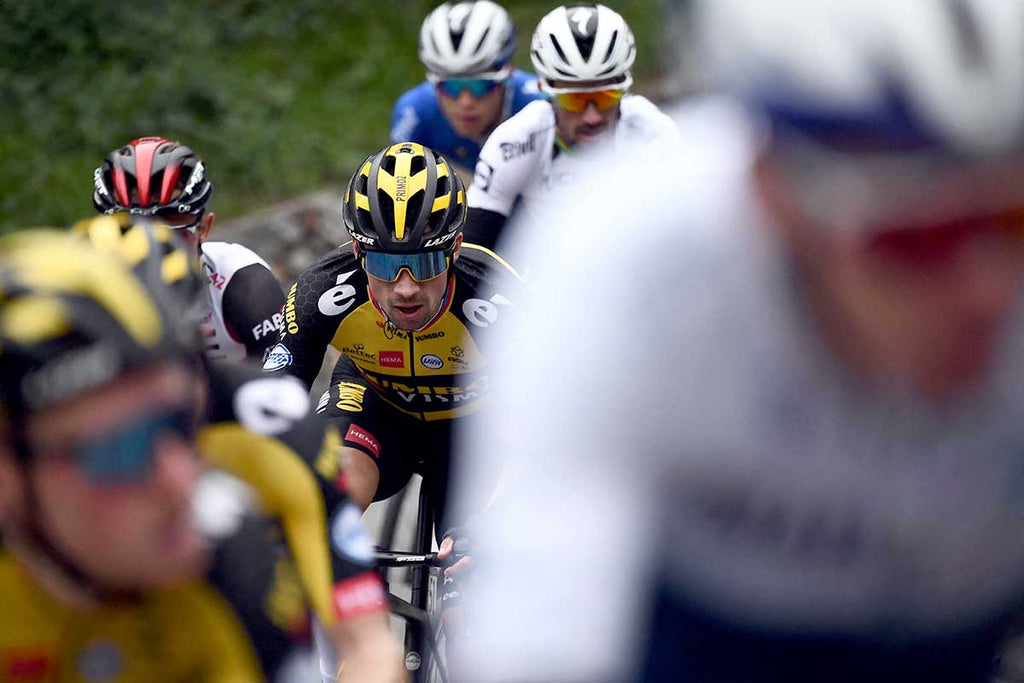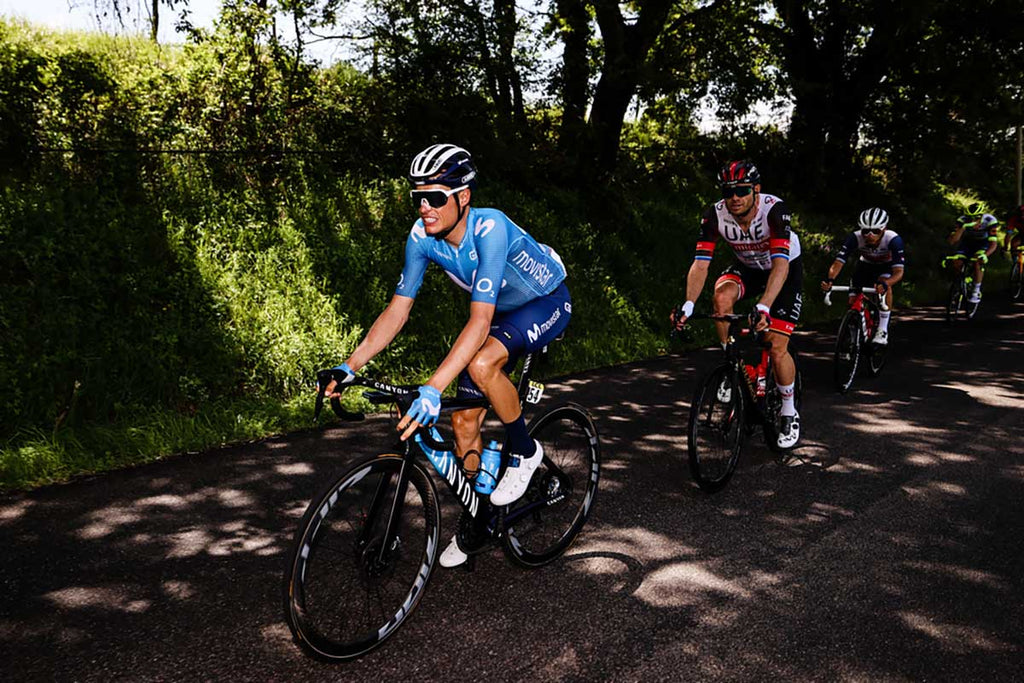Critérium du Dauphiné 2022: Route, predictions and contenders
Rouleur previews the Critérium du Dauphiné, an eight-day stage race that many riders will use as build up for the Tour de France
The 73rd edition of the Critérium du Dauphiné will be held from 5th-12th June in the south-east Dauphiné region of France. Dating back to 1947, the race is traditionally used by riders as a key part of their Tour de France preparations, with the form on display often a good barometer for La Grand Boucle.
2021’s edition took some time to come to life, with Ineos eventually taking control in the latter stages. With an array of top contenders in attendance this year, there’s every chance the contest will ignite much earlier. However, with a centrally positioned time trial followed by two massive mountain stages on the final weekend, the GC battle will likely be quiet in the early stages.
Route

Stage one - La Voulte-sur-Rhône – Beauchastel (192km)
Stage one features a number of categorised climbs, as the riders travel through the hills of the Ardèche. The toughest of these is the first, the Col de Leyrisse, which is 9.9km long at an average gradient of 4.2%. After this, there are three category three climbs to contend with. The most likely outcome for this stage is a breakaway win.

Stage two – Saint-Péray – Brives-Charensac (170km)
Stage two is a bit like stage one but in reverse, with the tougher climbing in the latter portion of the race. It also packs four categorised climbs into its distance – shorter than stage one at 170km – with the hardest test a category two climb, the Col du Mezilhac – 11.6km of ascent at an average of 4.1%.

Stage three – Saint-Paulien – Chastreix-Sancy (169km)
The third of three hilly stages which begin the race, this stage offers some variety with an uphill finish. The final 6.2 kilometre climb from Chastreix to Sancy is relatively steep at 5.6% average, and should separate the bunch. It's the first real challenge for the GC contenders and a chance for the favourites to stamp their mark on the race.

Stage four – Montbrison – La Bâtie d'Urfé (31.9km)
Stage four is an individual time trial of 31.9 kilometres in length. The parcour is barely troubled by a lump or bump along the way, and will allow the specialists a chance for a stage victory, while the GC contenders will fight for precious seconds in the shake-up that will follow.

Stage 5 – Thizy-les-Bourgs – Chaintré (162.5km)
Another rolling stage is on the cards for stage 5. With four categorised climbs, the hardest of which fall in the first half of the race, there’s a chance it could be a day for the sprinters if their teams can tame the breakaway.

Stage 6 – Rives – Gap (196.5km)
Stage 6 is the longest of this year’s Dauphiné, and it presents another hilly challenge, with the climbing increasing in intensity throughout the day. Two category two climbs will likely split the bunch and perhaps begin to separate the main contenders in the general classification.

Stage 7 – Saint-Chaffrey – Vaujany
The first of two big days in the mountains, stage 7 enters the Alps and takes on two of the Tour de France’s most well-used climbs, the Col du Galibier and Col de la Croix de Fer. Both rated HC, and both featuring in this year’s Tour, the two mammoth ascents offer a valuable opportunity for those taking on La Grand Boucle to test their legs, as the GC riders go to work.
At the Tour, the race will continue on to Alpe d’Huez. The peloton will be glad that here, they finish instead on a category two climb up to the ski resort of Vaujany. It’s not an easy alternative however – short and steep at 5.7km long and with an average of 7.2%, it will favour riders like Primož Roglič who can handle a punchy finish. The beginning of the climb is the trickiest with a 9.5% gradient for the first 4km.

Stage 8 – Saint-Alban-Leysse – Plateau de Solaison (139km)
The final stage of the race features a series of climbs which will decide the outcome of the overall classification. With two category one climbs, including another Tour de France staple, the Col de la Colombière, before a final ascent of the hors category Plateau de Solaison.
The final climb is a beast, and only the strongest will survive with their GC hopes intact as the riders fight for 11.3 kilometres at a painful average gradient of 9.2%.
Contenders
Team Jumbo Visma take 7/8ths of their purported Tour de France team to the Dauphiné and all eyes will be on the Dutch team to deliver a GC victory. They're taking a very different approach to in 2021 when Roglič stayed away from racing on the run-in to the Tour. This year, although they have played down their chances, claiming their intent to use the race as training, it would make a strong statement to their rivals – namely Tadej Pogačar – if they could pull off a win.

Defending champion Richie Porte will not line up for the Ineos Grenadiers following a stint at the Giro d’Italia, where he was forced to make an early exit through ill health. His team have won 7 of the last 11 editions of the race and will defend the title with a strong squad, which includes Ethan Hayter, Filippo Ganna and Tao Geoghegan-Hart.
UAE Team Emirates field a strong side, with potential leadership in the shape of Brandon McNulty and Juan Ayuso. One name missing from the start list is Tadej Pogačar, who opts to ride his home race, the Tour of Slovenia, instead of taking an early opportunity to battle his compatriot in France. That will have to wait.

Who will lead for Bahrain Victorious isn’t immediately clear: they have La Flèche Wallonne victor Dylan Teuns, last year’s Giro runner-up Damiano Caruso, and previous Tour de France leader Jack Haig among their ranks, along with Pello Bilbao who may well take a back seat following an active Giro d’Italia riding in support of Mikel Landa. They have strength in depth, though, and will likely challenge both on GC and for stages.
Movistar will look to Enric Mas to begin his Grand Tour campaign with a strong showing in France, while Astana Qazaqstan will hope Alexey Lutsenko can reproduce his impressive early season form. For Bora-Hansgrohe, Wilco Kelderman may carry tired legs from the Giro d’Italia, but breakaway artists Nils Pollitt and Patrick Konrad will be up for a battle, the former performing well at the 2021 edition of the race.

French hopes will rest on the likes of Ben O’Connor of AG2R Citroen, as well as David Gaudu and Michael Storer of Groupama-FDJ. Mark Padun, who showed incredible form to take two stages on last year’s tour will this year be in attendance with his new side, EF Education-EasyPost, alongside Esteban Chaves. Expect to see the two climbers stage hunting in the mountains.
Uno-X missed out on a wildcard for Le Tour, and will be keen to show the organisers what they’re missing. Their leader Tobias Johannesen could excel on the climbs, and they are likely to animate the race with their attacking style. The Norwegian side are definitely ones to watch.
Prediction
We think Jumbo Visma doth protest too much, and that despite claims of using the Dauphiné as a mere training exercise, the Dutch team will not waste the opportunity to assert their dominance ahead of their biggest goal of the year. With that in mind, we think Primož Roglič will triumph.






























